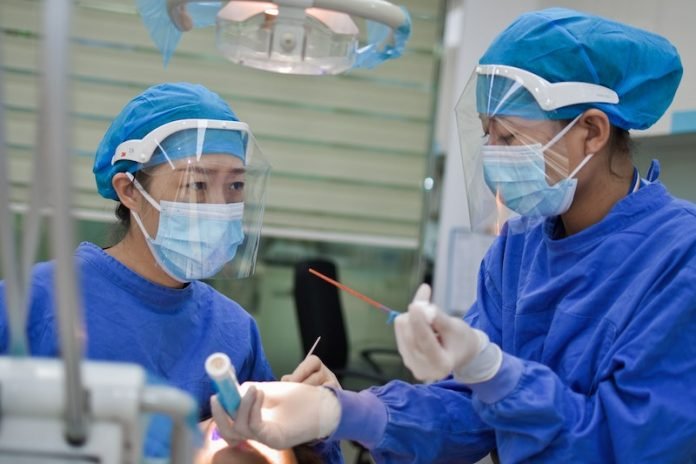
In a recent study at MassBiologics of UMass Medical School, researchers found that COVID specific IgA monoclonal antibodies may provide effective immunity in the respiratory system against the novel coronavirus—a potentially critical feature of an effective vaccine.
They reported the discovery of a cross-reactive human monoclonal antibody (MAB) to SARS-CoV-2 spike proteins in a paper.
The antibody blocks ACE2 receptor binding on the mucosal tissue of the respiratory tract—potentially preventing or limiting SARS-CoV-2 infection-causing COVID-19 disease.
The study is published in Nature Communications. One author is Yang Wang, MD, Ph.D.
Like other scientists around the world, the research leadership at MassBiologics started talking about what became known as SARS-CoV-2 within days of the first cases of when the novel coronavirus was first reported.
MassBiologics was in a unique position to respond, and those early discussions have resulted in the discovery of a novel approach to prevent and treat SARS-CoV-2 infection.
The origins of this rapid and important discovery go back 16 years, when the team developed an IgG monoclonal antibody that was effective against a similar virus, SARS (that was SARS-CoV, the first severe acute respiratory syndrome caused by a novel coronavirus).
That first SARS virus caused alarming illness, but then disappeared; the team, which was ready at the time to initiate a clinical trial, saved the research materials associated with that work.
When SARS-CoV-2 was recognized and began to spread, the researchers realized that that first MAB might help with this new infection.
They launched the process of resurrecting the old SARS program, retrieving frozen hybridoma cells that had been developed 16 years earlier, thawing them, and determining if what worked for one novel coronavirus would work for another.
Although there was a 90% similarity between the two coronaviruses, the monoclonal antibody exhibited no binding to the current coronavirus.
The team then evaluated another MAB from that earlier work, which was also only weakly effective.
Undeterred, the team thought about their experience with a separate research program to develop “secretory IgAs (sIgA),” antibodies that play a crucial role in immunity on mucosal surfaces.
They have been investigating sIgA in the GI tract as a possible therapy to prevent gastrointestinal infections.
They found similar anti-SARS-CoV-2 sIgA produce passive mucosal immunity in the respiratory tract, where COVID-19 disease is incredibly damaging.
Based on these results, the team worked further to understand the nature of the effect of the IgA antibody.
The findings show that a unique IgA antibody that could potentially be applied through mucosal administration, in combination with other therapies for COVID-19 protection.
Copyright © 2020 Knowridge Science Report. All rights reserved.



